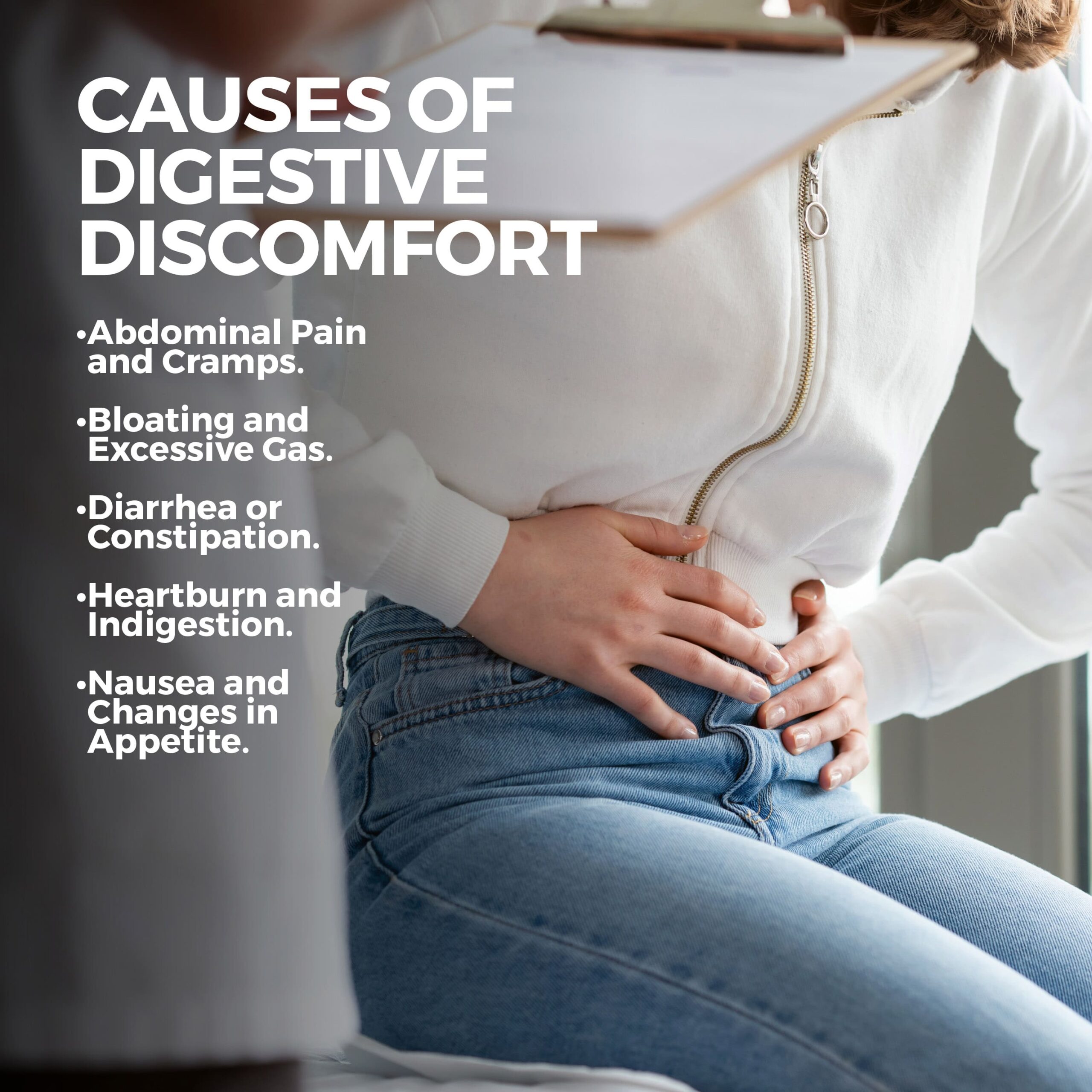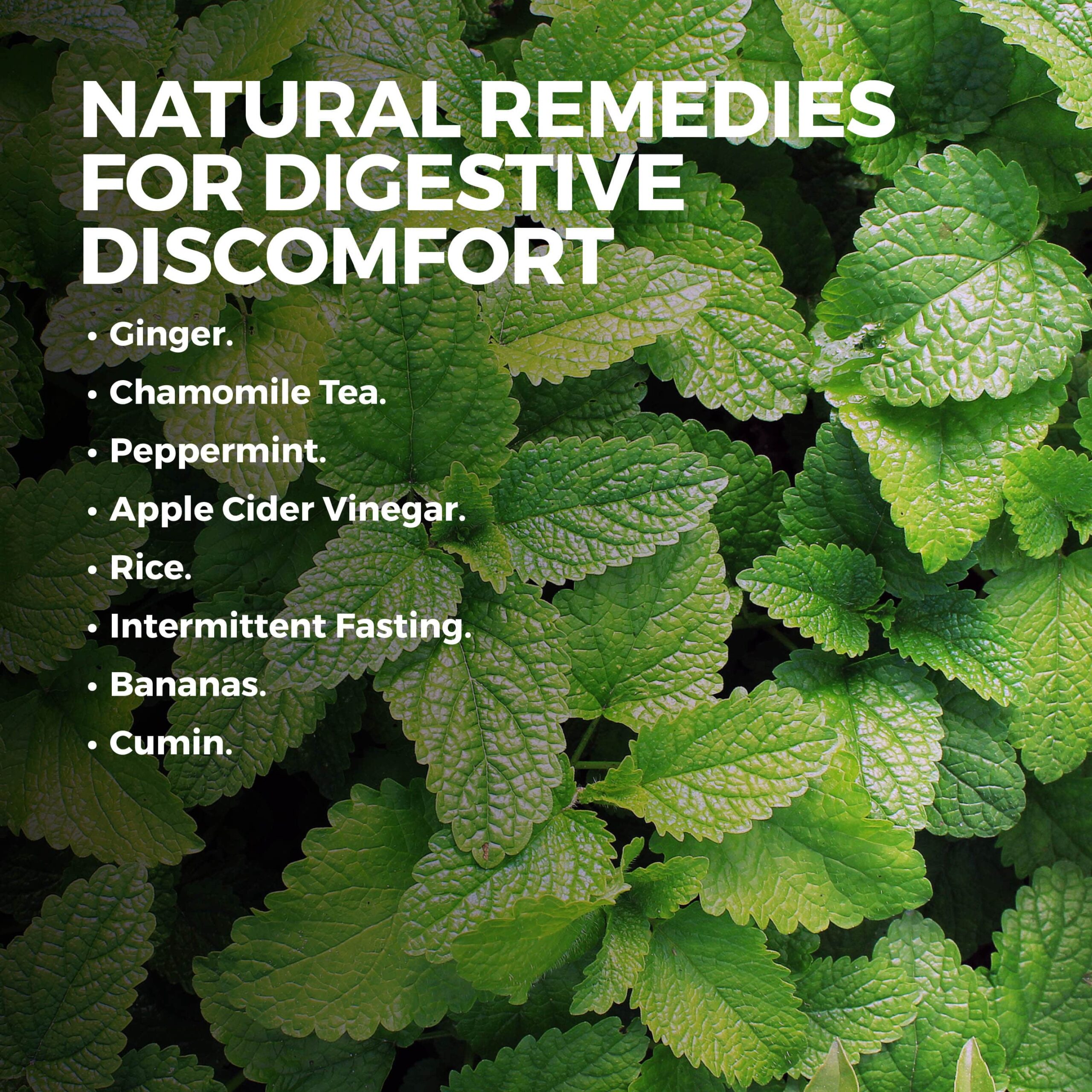
Nurturing Your Gut: Natural Remedies to Alleviate Digestive Discomfort
A healthy gut is fundamental to overall well-being, playing a pivotal role in our digestion, immunity, and total health. When our gut is in balance, we often experience vitality and comfort, but digestive discomfort can easily disrupt our daily lives.
Digestive discomfort, often characterized by symptoms such as bloating, indigestion, nausea, and constipation, is commonly experienced by many. While over-the-counter medications are available, natural remedies offer relief without the potential side effects associated with pharmaceutical drugs.
In this blog, you’ll learn how to nurture your gut using natural remedies. From time-tested herbs and dietary adjustments to mindful practices, we’ll explore a holistic approach to digestive well-being. It’s important to note that if digestive discomfort persists or worsens, seeking professional help from Gastroenterology of Greater Orlando is essential for a proper diagnosis and treatment plan.
Whether you’re seeking relief from occasional discomfort or aiming for long-term gut health, these natural food-based solutions offer a path to a happier and more harmonious digestive system.
Understanding Digestive Discomfort
Digestive discomfort, also known as dyspepsia or indigestion, encompasses a range of gastrointestinal symptoms including:
- Abdominal Pain and Cramps: Persistent or cramp-like pain in the abdominal area can signal digestive issues.
- Bloating and Excessive Gas: Feeling overly full or experiencing excessive gas after meals can lead to bloating, which may cause discomfort.
- Diarrhea or Constipation: Frequent loose or watery bowel movements (diarrhea) or difficulty passing stool and infrequent bowel movements (constipation) are common digestive problems.
- Heartburn and Indigestion: A burning sensation in the chest or throat after eating can signal heartburn or indigestion.
- Nausea and Changes in Appetite: The sensation of queasiness or the urge to vomit, along with unexplained changes in appetite, may point to digestive discomfort and potential underlying issues.
Recognizing these symptoms is crucial for identifying and addressing digestive issues effectively.

Causes of Digestive Discomfort
The factors contributing to digestive discomfort can be many, but often include the following:
- Overeating or Eating Too Quickly: Indulging in large portions or eating too quickly can overwhelm the digestive system, leading to discomfort, bloating, and indigestion.
- Consuming Alcohol: Excessive alcohol consumption can irritate the stomach lining, resulting in symptoms like heartburn, nausea, and abdominal discomfort.
- Eating Fast Food or Spicy Food: Fast food, which usually has a high fat and sodium content, can be harsh on the digestive tract. This can result in heartburn, indigestion, and abdominal pain.
- Smoking: Smoking can weaken the lower esophageal sphincter, allowing stomach acid to flow back into the esophagus, leading to acid reflux and discomfort.
- Certain Medications: Antibiotics, painkillers, and nonsteroidal anti-inflammatory drugs (NSAIDs- aspirin, ibuprofen {Motrin, Advil}, and naproxen sodium {Aleve}), can irritate the stomach lining, potentially causing gastritis, indigestion, or ulcers.
- Digestive Conditions: Conditions such as peptic ulcers, gastritis, and hyperacidity can result in chronic discomfort, including abdominal pain and burning sensations.
- Anxiety: High levels of stress and anxiety can impact the digestive system, leading to symptoms like diarrhea, constipation, and abdominal cramps.
Identifying the specific triggers for digestive discomfort is crucial for finding relief and managing these symptoms effectively.

Natural Remedies for Digestive Discomfort
When seeking relief from digestive discomfort, turning to natural remedies can be a gentle, practical, and effective approach. Several natural remedies can be effective in alleviating digestive discomfort, including:
- GINGER: Ginger has been used since ancient times to treat stomach aches. It contains chemicals called gingerols and shogaols, which can speed up stomach contractions and reduce abdominal pain. You can consume ginger in various forms – tea, candy, capsules, or fresh ginger root.
- CHAMOMILE TEA: Chamomile is known for its anti-inflammatory properties, which can help relax the muscles in the gastrointestinal tract and decrease GI contractions caused by an upset stomach. Sip it as a warm tea, and you’ll get double the benefits as the heat can further relax painful stomach cramps.
- PEPPERMINT: The menthol in peppermint leaves acts as a natural pain reliever and aids in soothing stomach issues. Peppermint provides versatility in consumption, whether as a soothing tea, through chewing gum, or by savoring peppermint candy. This flavorful herb offers many enjoyable ways to seek relief from digestive discomfort.
- APPLE CIDER VINEGAR: The acids in apple cider vinegar can help decrease starch digestion, allowing the starch to reach the intestines and promote a healthy gut microbiome. Mixing a tablespoon of apple cider vinegar with a cup of water and a teaspoon of honey creates a soothing drink. Sipping this concoction can be a pleasant way to harness the digestive benefits of apple cider vinegar while finding relief from discomfort.
- RICE: When dealing with diarrhea, consider preparing a simple bowl of rice. Rice acts as a bulking agent, aiding in the absorption of excess fluid in the gut and potentially reducing the frequency of loose stools. Its gentle and easily digestible qualities make it a preferred option for easing digestive discomfort resulting from diarrhea.
- INTERMITTENT FASTING: Intermittent fasting provides a beneficial chance for your gut to rest and revitalize, optimizing the motility of your bowel. Consider trying the 16:8 fasting cycle, where you fast for 16 hours and consume your meals within an eight-hour window. Even adopting this regimen for a brief period can potentially yield digestive advantages and promote gut health.
- BANANAS: Bananas are a nutritional powerhouse, containing various vitamins, folate, and potassium. These nutrients play a key role in relaxing muscle spasms and alleviating cramps in the digestive tract. Bananas can be beneficial in managing diarrhea by firming stools, aiding in the normalization of bowel movements, and promoting digestive comfort.
- CUMIN: Cumin seeds are known for their digestive benefits. They can help reduce hyperacidity, reduce gaseous distention of the abdomen, and provide relief from abdominal pain. To harness these properties, you can prepare a simple remedy by combining a teaspoon of cumin seeds with some dry coconut and two garlic cloves. Mix these components and consume them promptly to help relieve digestive discomfort.

When to Seek Professional Help for Digestive Discomfort
Although these natural remedies can sometimes relieve mild symptoms, it’s essential not to overlook persistent or severe discomfort. If your stomach pains persist for more than several days without improvement, call us. Sudden and severe stomach aches may signal more serious underlying issues like appendicitis, stomach ulcer bleeding, gallbladder inflammation, kidney stones, or diverticulitis. In such cases, immediate medical attention is required.
Contact Us
Natural remedies provide valuable resources for seeking relief from digestive discomfort and promoting gut health. Approaches like herbal teas, dietary adjustments, or mindful practices can be effective. If your symptoms persist, worsen, or become severe, it is important to seek professional help.
At Gastroenterology of Greater Orlando, our team of experts stands ready to provide the specialized care and guidance you need for optimal digestive health. Besides natural remedies, incorporating healthy habits such as maintaining a balanced diet, staying hydrated, and engaging in regular exercise can contribute to a thriving digestive system. By harnessing the potential of natural remedies, alongside seeking professional guidance when needed, you can embark on a journey towards improved digestive comfort and overall well-being.